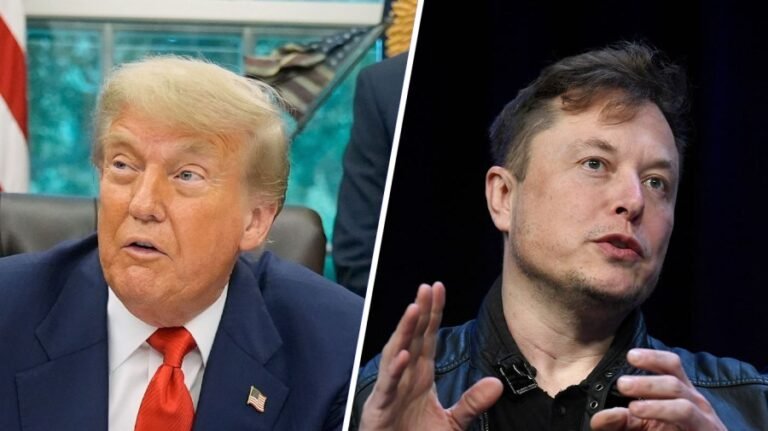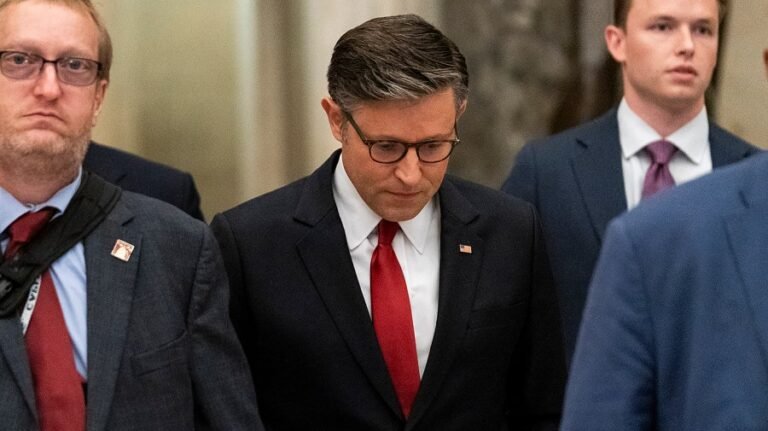
Elon Musk, we hardly knew ye.
Mercifully.
In a week where SpaceX had yet another “rapid unscheduled disassembly,” so went Elon Musk’s ultimate (we think?) departure from Washington.
He is packing up his lobbyists, his hopes of moonlighting as a policy puppet-master, and heading back to where the Wi-Fi is strong and the regulations weak. And while his fans weep into their Dogecoin wallets, the rest of us — lawmakers, regulators, and the general population who prefer their billionaires less performatively chaotic — can give a sigh of relief.
Good riddance, Elon.
Musk’s Beltway blitzkrieg never really worked. Despite the Tesla CEO’s best efforts to ingratiate himself with both parties — inviting Republicans to his rocket factory one week and cozying up to Democrats the next — he always seemed like someone trying to crash a party to which he hadn’t been invited.
And now, he has announced that he’s dialing back his political spending — on cue, like a gambler blaming the dealer and leaving the table after blowing his stack on bad bets.
In an exclusive sit-down with CBS Sunday Morning, Musk declared he was “disappointed” by the domestic policy bill passed last week by House Republicans — yes, Republicans — which came with a price tag he found distasteful. Never mind that the bill was heavily backed by none other than President Trump, his favorite on-again, off-again political prom date. Musk, the self-appointed champion of fiscal restraint, recoiled at the cost like someone shocked to find the champagne he ordered actually came with a bill.
This comes from the same man who, until recently, had been the unofficial head of the Department of Government Efficiency — DOGE, naturally — an imaginary agency named after his favorite meme coin (because of course it was).
For a while, Musk really seemed to think he could be the tech whisperer of Washington, giving TED Talks on the Hill and issuing policy edicts from his phone like a boy king with a satellite internet connection. He brought big ideas — universal basic income, Mars colonies, underground hyperloops — but he never stayed focused long enough to explain how any of them might actually work.
In other contexts, he may have been a visionary. But in Washington, he wasn’t a visionary — he was just a weird distraction.
When he wasn’t tweeting insults at sitting senators or live-fact-checking the FTC during dinner, he was poking the bear at every regulatory agency within a five-mile radius. His approach to governance was simple: move fast, break things, blame the deep state, and threaten to relocate your factory to the moon.
He misunderstood Washington from the jump. He thought it was a marketplace for ideas when it’s really a symphony of negotiation. He expected applause for disruption when the currency here is stability.
So now he’s doing what any billionaire does when he doesn’t get his way—he’s pouting, packing up, and going home. And you know what? That’s just fine.
Washington has enough on its plate — the AI arms race, data privacy nightmares, deepfakes of Joe Biden doing backflips off a tank. We don’t need Elon Musk wandering around the Capitol like a Reddit post come to life, arguing with senators about pronouns and infrastructure.
This isn’t the last we’ll hear from him, I’m sure. Musk is like glitter — loud, flashy, and impossible to fully clear away. He’ll pop up in SEC filings, FCC dockets, and FDA debates over whether brain-chip side effects count as “enhanced cognition.” He’ll keep applying for government contracts while pretending government is the problem.
But for now, the man himself is stepping back. That alone is worth celebrating. Because Musk never really wanted to shape policy — he wanted to shape mythology: the mythology of the ungovernable genius; of the lone innovator battling the forces of mediocrity (that is, public servants); of a future dependent not on collective progress, but on one guy with a phone and a flamethrower.
He told us that the future would be built by visionaries like him. What he didn’t say is that we’d all be paying for it with tax credits, federal grants, and the occasional Twitter meltdown.
The real work of democracy is quiet, slow, and largely un-tweetable. It’s people writing dense policy memos, updating transportation safety standards, holding three-hour committee hearings on battery disposal. It’s not sexy, it’s not livestreamed, and it sure as hell isn’t driven by vibes.
So if this is really it — if Elon Musk is heading back to Austin, Boca Chica, or whatever undisclosed bunker he’s building to survive the apocalypse he helped accelerate — we should take the win.
This is a chance to refocus on real solutions, not cults of personality; on ideas that outlive their inventors; on a system where progress isn’t dictated by whims.
Let us not mourn his absence. Let us remember it as a lesson — that being loud isn’t being right, and that disruption, untethered from responsibility, is just noise.
Don’t let the spaceship door hit you on the way out.
Aron Solomon is chief strategy officer for AMPLIFY and has taught entrepreneurship at McGill University and the University of Pennsylvania.






